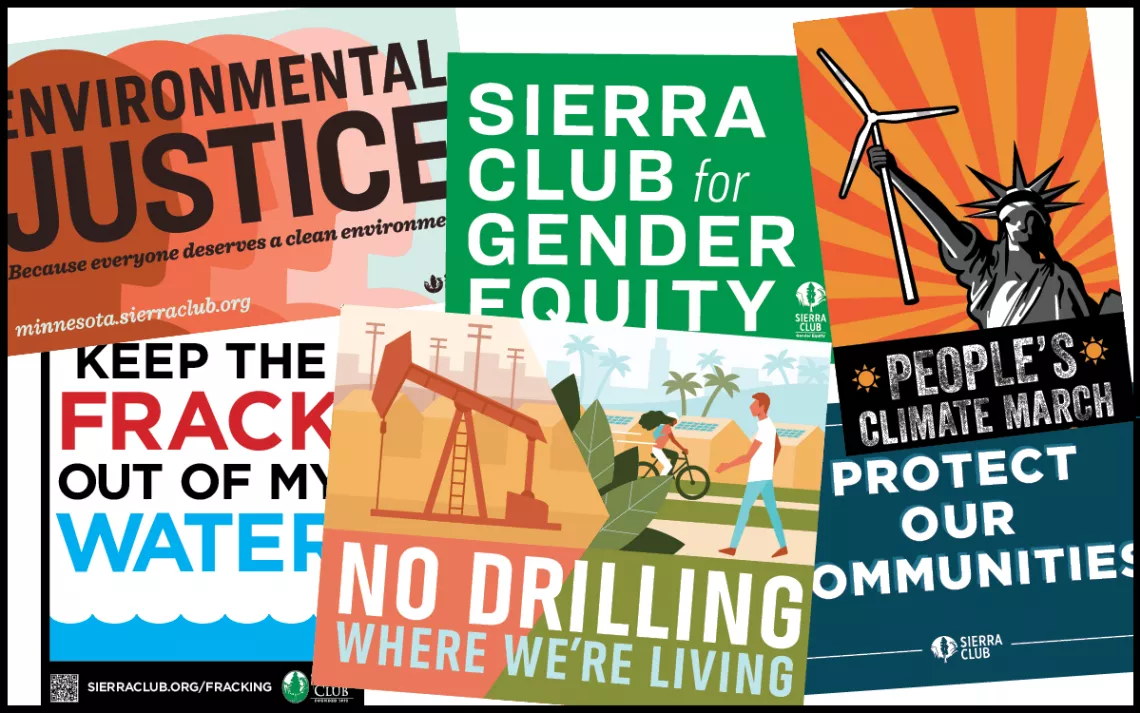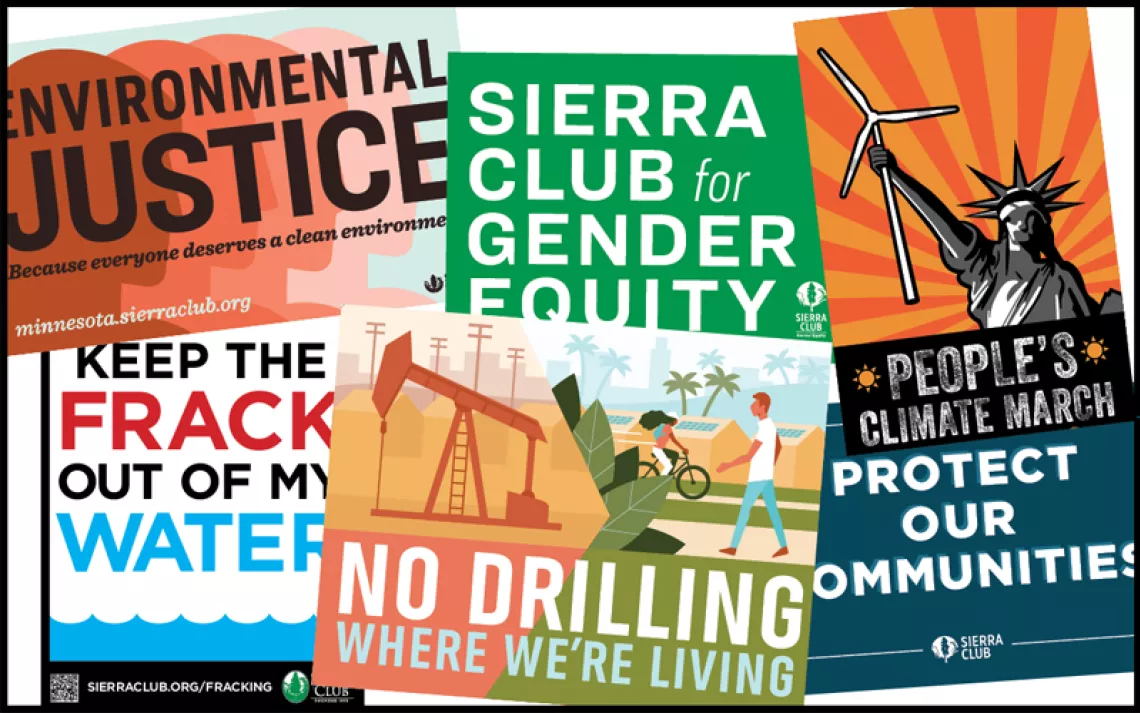What's the Sierra Club Been Up To Lately?
Alerts, campaign updates, and victories from Sierra Club volunteers and staff

By the Numbers
56,000: The approximate number of jobs the offshore wind industry will support by 2030.
63: The number of gray wolves in California as of November. State biologists say the population has increased sixfold since 2019.
$22 billion: The amount saved because of energy-efficiency improvements in commercial buildings, manufacturing plants, offices, and homes under the Biden administration’s Better Buildings initiative.
28 million: The number of acres protected when the Department of the Interior retained conservation regulations for Bureau of Land Management areas in Alaska this past summer.
192: The age of the world’s oldest living land animal, Jonathan the tortoise. His birthday was December 4.
Alerts
Explore More
The EXPLORE Act enjoys bipartisan support in Congress, but senators have yet to bring it to the floor for a vote. If signed into law, it would expand access to the outdoors, simplify the recreation permit process, and extend a program that ensures fourth graders can access federal public lands for free. Several conservation and outdoor groups, such as the Sierra Club and the National Parks Conservation Association, support the measure. Lawmakers in the House passed a bill last summer, but its companion bill has stalled in the Senate. Call on your senators to pass the EXPLORE Act without delay.
» Take action: sc.org/explore-act
Failing Grade
The Sierra Club’s 2024 edition of The Dirty Truth reveals some worrying news. Utility companies are failing to switch to renewable energy at the pace needed to mitigate the worst effects of climate change. To analyze industry trends, the report’s authors looked at 75 utility companies that own half the gas and coal plants in the country, focusing on plans to retire coal plants, avoid new gas plants, and add new renewable energy sources. Only 20 of the companies have plans to be coal-free by 2030. Overall, the report gave the utilities a score of 29 out of 100, which is only a three-point increase from last year.
» Take action: sc.org/dt-2024
Victories
Fracking Finale
Environmental groups cheered on October 1 when a California law prohibiting fracking took effect. The new law forbids regulators from issuing new permits. Grassroots groups such as Sierra Club California have advocated for decades to end fracking. “Banning this method of extraction is a huge step in protecting our air, water, and communities,” said Jasmine Vazin, the Sierra Club’s Beyond Dirty Fuels campaign deputy director.
Standard-Bearer
In October, the Supreme Court rejected three attempts by Republican-run states and industry advocates to prevent stronger federal air pollution standards from going into effect, allowing the rules to remain in place. Collectively, the maintained standards limit the amount of mercury and other hazardous pollutants coal plants can release into the atmosphere and require oil and gas companies to do more to prevent methane leaks.
Making Waves
The Sierra Club’s Santa Lucia Chapter has worked with local tribes and California leaders for decades to protect thousands of square miles off the Central Coast. In October, their dream came to fruition when the National Oceanic and Atmospheric Administration announced the creation of the Chumash Heritage National Marine Sanctuary, the first tribally nominated and third-largest marine sanctuary in the United States.
» Read more: sc.org/chumash
Check It Out
The 2024 Sierra Club National Awards recognized 26 people from across the country for their accomplishments in conservation, activism, and leadership. Among the recipients of the top honors were Bruce Hamilton, Susana Reyes, and Shawn LaTourette. Read more: sc.org/2024-awards
Chapter Corner

Parks Over Pavement
The Florida Chapter helped galvanize grassroots action when the state Department of Environmental Protection tried to fast-track a plan to build hotels, golf courses, and pickleball courts on state parks’ land. Conservationists say that the proposal, initially supported by Governor Ron DeSantis, would have ruined at least nine state parks. To prevent that from happening, organizers protested and attended public meetings just days after the plan’s announcement. The governor withdrew his support following the backlash. “Sierra Club Florida has flexed, and the governor flinched,” Susannah Randolph, the Florida Chapter director, wrote in a statement to staff. “Our staff, volunteers, partners, and elected leaders came together quickly and ferociously to defend our state’s wild places.”
Utility Cash Grab
WEC Energy Group, a utility company in the Great Lakes region, is planning to build new gas-fired power plants. These plans contradict the company’s stated goal of reducing carbon emissions and being carbon neutral. The build-out would mean ratepayers would see their bills rise by nearly 20 percent to pay for the facilities, which could cost $800 million over the next two years. Organizers from the Sierra Club’s Wisconsin Chapter are trying to keep the new plants out of their backyards. “WE Energies [a WEC subsidiary] and WEC have long put massive profit margins ahead of affordability for customers,” said Cassie Steiner, the chapter’s senior campaign coordinator. “These plans for new gas plants in the region are yet another heartless and unapologetic cash grab from folks struggling to pay their energy bills.”
Trump Watch

The Second Coming
With Trump 2.0 upon us, Sierra expects the president and his allies to be as unrestrained as before. We’re resurrecting Trump Watch to keep members up-to-date on the maneuverings and misdeeds of an incoming administration that is openly hostile to the environment.
During his election campaign, Donald Trump continued to flippantly dismiss the urgency of climate change. “When people talk about global warming, I say the ocean is going to go down 100th of an inch within the next 400 years. That’s not our problem,” Trump said in September.
As a candidate, Trump pledged to further increase US oil and gas production (which is already at historic highs) and told oil executives that Alaska’s Arctic National Wildlife Refuge is “the biggest oil farm,” likening it to Saudi Arabia, one of the world’s largest petrostates.
During his victory speech, Trump doubled down as he trumpeted US fossil fuel dominance: “We have more liquid gold, oil and gas, . . . than any country in the world.”
Fossil fuel executives are no doubt pleased with the election results. Oil and gas interests gave at least $75 million to Trump’s campaign and the Republican National Committee, making the industry one of Trump’s biggest donors.
Less than a week after the election, Trump picked former representative Lee Zeldin of New York to be his EPA administrator. In its press release, the Trump transition team referred to the EPA as the “Environmental Protective Agency.” The League of Conservation Voters has given Zeldin a lifetime voting record of just 14 percent.
Illustrations by Miguel Porlan
 The Magazine of The Sierra Club
The Magazine of The Sierra Club


